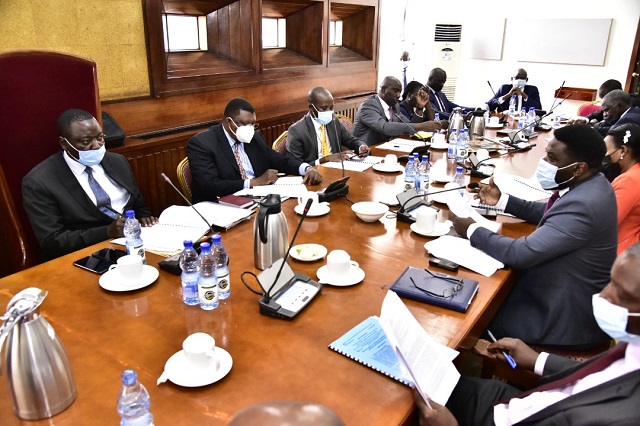
Kampala, Uganda | THE INDEPENDENT | Clauses in the East African Crude Oil Pipeline (Special Provisions) Bill, 2021 have rattled a section of civil society organisations over concessions and tax exemptions in the proposed legislation.
During an appearance before the Committee on Environment and Natural Resources, Julius Mukunda, the Executive Director of the Civil Society Budget Advocacy Group said MPs should find ways to lessen the exemptions.
“Clause 3(1) [indicates that] the tariff income shall not be subjected to Corporation/Income tax during the exemption period …ten years is too long without charging a tax. Besides, the provision to extend the exemption can be abused,” he said.
The Committee, chaired by MP Emmanuel Otaala, is receiving external input on the Bill whose object is to enable certain provisions of the Intergovernmental Agreement (IGA) signed between Uganda and Tanzania for the establishment of the crude oil pipeline.
Mukunda also opposed housing the East African Crude Oil Pipeline company outside Uganda, arguing that it ‘makes Uganda ownership and rights to petroleum dissolved’.
The Bill also contains a ‘non-interruption’ clause, which has the effect of disallowing authorities in Uganda to require the company to deliver petroleum from the existing Ugandan oil fields for local consumption, a move James Muhindo, the Coordinator of the Civil Society Coalition on Oil and Gas criticized as having the potential of compromising national security.
Muhindo said the clause is also a recipe for having an oil crisis as experienced in some oil producing countries.
“Clause 30(1) on non-interruption of project activities limits the supply of petroleum to Uganda (local markets) only for the petroleum supplied for the refinery; this provision does not only freeze the applications of some provisions of the Upstream Act sections 76, 121 and 122, which provides for the government to acquire oil for other strategic reasons such as war,” he said.
Dickson Kateshumbwa, Sheema Municipality MP said because of previous agreements committing government on taxation and other matters relating to oil extraction, the solution may come out of the law.
“We may need to look at mitigation measures on some of the concessions outside the law; there is [otherwise] going to be a VAT bonanza and too much pressure on URA to refund [tax exemptions] without a budget,” he said.
Otaala said there is need to have closer scrutiny of the provisions and see what can be renegotiated, even if outside of the law.
*****
SOURCE: UGANDA PARLIAMENT MEDIA
 The Independent Uganda: You get the Truth we Pay the Price
The Independent Uganda: You get the Truth we Pay the Price



